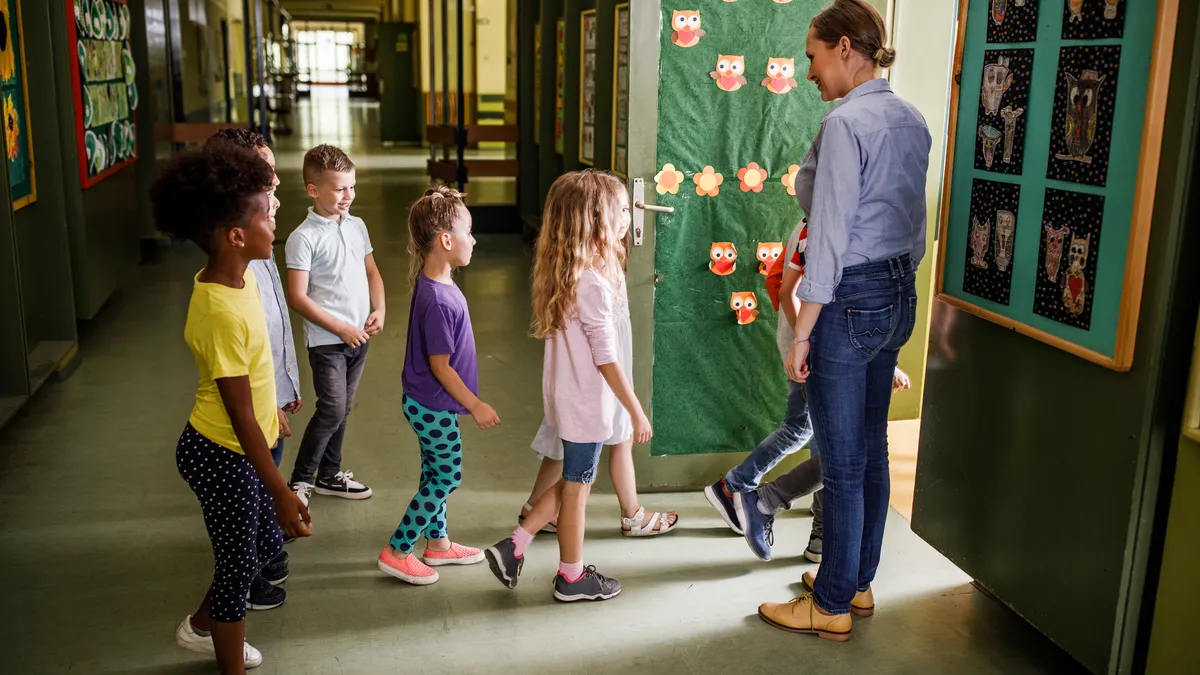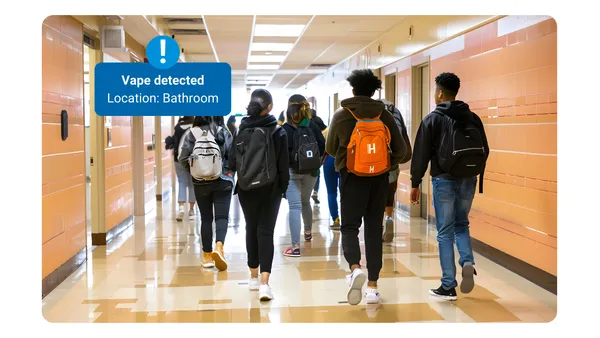Dive Brief:
- Washington state will dedicate $3.5 million in federal grants to an apprenticeship program addressing special education teacher shortages, according to Peter Guzman, manager of the state’s Department of Labor & Industries Apprenticeship Program.
- Those leading the apprenticeship program hope it will open the door to the special education teaching profession for more people, as it requires only a bachelor’s degree instead of a master’s degree to participate. Additionally, three school districts will work with the apprenticeship program to provide training.
- To expand participation and interest in the special education profession, the funds awarded by the U.S. Department of Labor will also help expand outreach to underrepresented communities, including women, people of color, and veterans, according to the Washington State Department of Labor & Industries.
Dive Insight:
Washington state's initiative comes as efforts ramp up in several states to tackle special education teacher shortages.
Special education experts have pointed out that low pay, poor working conditions and a lack of mentoring access are persistent barriers to the profession.
Some 45% of schools nationwide reported special education vacancies in 2022, according to the National Center for Education Statistics. Among schools that reported at least one teaching vacancy, special education had the most open positions.
Washington’s new teacher apprenticeship program will include at least 2,000 hours of on-the-job training alongside 144 hours of related instruction, Guzman said in an email. The program will help applicants attain any needed certifications to teach special education in the state, Guzman added. Wages, terms of the apprenticeship, and working and instructional hours are still in the works.
Meanwhile, the teacher apprenticeship model is gaining momentum as a potential solution to address overall staffing shortages, though it’s still too early to tell if the latest investments in these programs — like those being made in Washington state — are paying off. A typical teacher apprenticeship program pays for a teacher candidate to receive mentoring from another educator as they fulfill in-classroom training and work toward a teaching degree and license.
States are also looking at other creative ways to take on the special educator shortage and increase access to the field.
For instance, the University of Southern Maine announced Monday it will offer a bachelor’s degree in special education. The program was created particularly for “ed techs,” who are personnel that provide support to certified teachers working in schools, early childhood centers or developmental programs for children with disabilities.
The degree is specifically tailored to those already working in schools, as the program is fully remote. On top of that, the program accepts previous learning credits and course transfers, and ed techs can complete student-teaching internships while working in their current position. There’s also an option to tap into the apprenticeship model, which will work in partnership with several Maine school districts.
At the start of the 2023-24 school year, the Wisconsin Department of Public Instruction will launch the Wisconsin Special Educator Induction Program.
Through this opportunity, each of the state’s 12 Cooperative Educational Service Agencies will offer induction training for first or second-year special educators. The program includes professional development, coaching and support network sessions. There will be 25 participants selected in each CESA for the program, which will be offered at no cost to a school district.















